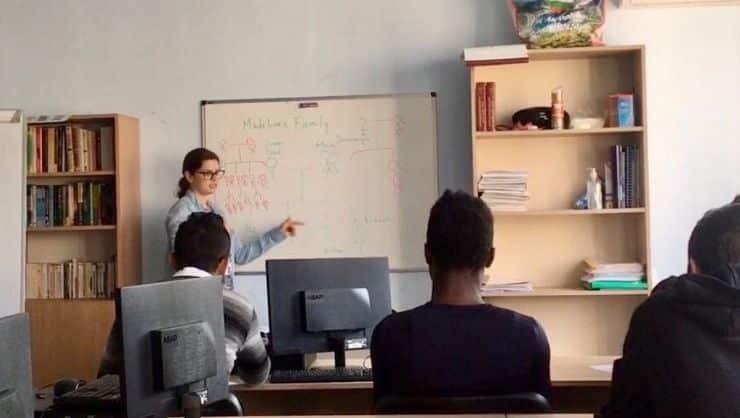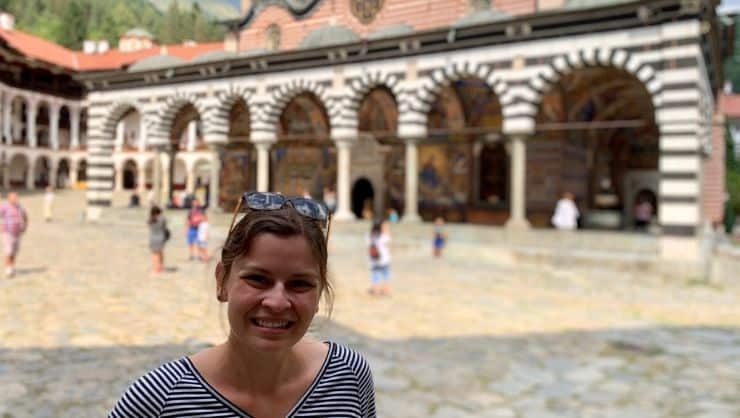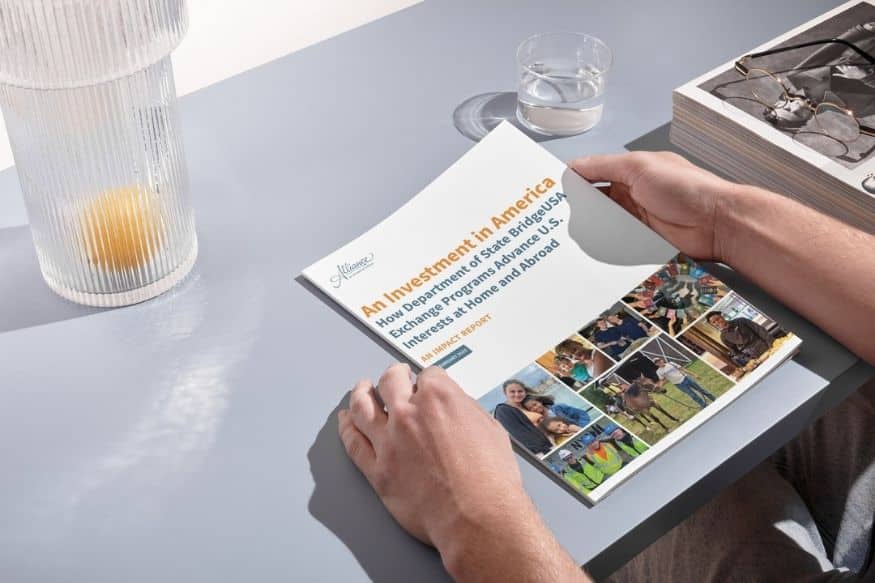Christianson Fellow Madeline de Figueiredo spent six months in Sofia, Bulgaria volunteering with Center for Legal Aid-Voice Bulgaria, an NGO connecting refugees and asylum seekers with vital social services. Madeline reflects on the most eye-opening part of her experience.
While in Bulgaria, I was involved in legal aid projects, social initiatives, and community outreach efforts, which reached hundreds of refugees and migrants within the capital city of Sofia. Much of my work was affiliated with the Center for Legal Aid – Voice in Bulgaria (CLA), a local NGO that supports migrants and refugees in detention centers, through asylum proceedings and in the integration process.
In partnership with CLA and other local organizations, I taught language classes in migrant detention centers, provided community engagement support for women and children via refugee integration centers, and performed translation services in legal consultations and trial proceedings.

Image courtesy of Madeline de Figueiredo
The experience was eye-opening in many ways, but perhaps most significantly, I learned the importance of providing comprehensive support to refugees and migrants. Legal aid in isolation is not as effective as when it is paired with social and economic support.
CLA’s case management programs combine mechanisms for legal aid, financial support, social guidance, and psychological support together, and I’ve seen the positive effects of this multidimensional approach. These comprehensive programs help fill the gaps in governmental services.
My work focused on the vulnerabilities of refugees and migrants to human trafficking. I found that there were four major factors contributing to systematic oversights in the identification and mitigation of the trafficking of refugees and migrants:
1) Bulgaria’s anti-trafficking regulations are narrow.
The national agencies that work in counter-trafficking limit their focus to Bulgarian citizens and European Union citizens, overlooking refugee and migrant communities that are highly vulnerable.
2) Resources to address the increasing need are limited.
The decreasing financial viability of Bulgarian civil society organizations in 2015, and in the years that followed, coincided with the peak of incoming refugees. There were fewer resources in the NGO sector to manage a rapidly increasing need.
3) Bulgaria lacks functional procedures to integrate refugees and identify vulnerabilities.
There is no functioning procedure for the integration of refugees and there is no formal procedure for identifying vulnerability in Bulgaria. Therefore, there are no official procedures for people to access certain basic services and no assessment to measure need and risk of exploitation.
4) Integrating refugees and identifying vulnerabilities are difficult tasks.
Efforts to combat trafficking and exploitation of asylum-seekers are further complicated by Bulgaria’s status as a transit country for refugees and migrants and as a country of origin for trafficking in human beings. Victims are far less likely to report abuse and exploitation because they don’t plan to stay in Bulgaria and don’t want to be tethered to procedures that may delay transit to their future destination.
These four elements that exacerbate refugees’ vulnerabilities are all areas that Bulgarian nonprofits are working to address.

Image courtesy of Madeline de Figueiredo
Overall, I was struck by both the CLA team’s dedication and the clients’ resilience. I was privileged to be surrounded by a team that was committed not only to direct-service programming, but also to the broader advocacy efforts that aim to create institutional change within the Bulgarian asylum process.
To tackle these human rights problems, cooperation and collaboration between actors in the field is essential. The NGOs’ leadership to initiate a collaborative effort has inspired me to continue working in this field and I look forward to the opportunities to come.
After returning from her Christianson Fellowship-supported project in Bulgaria, Madeline landed a role with Human Rights Watch’s Crisis and Conflict division in London.




